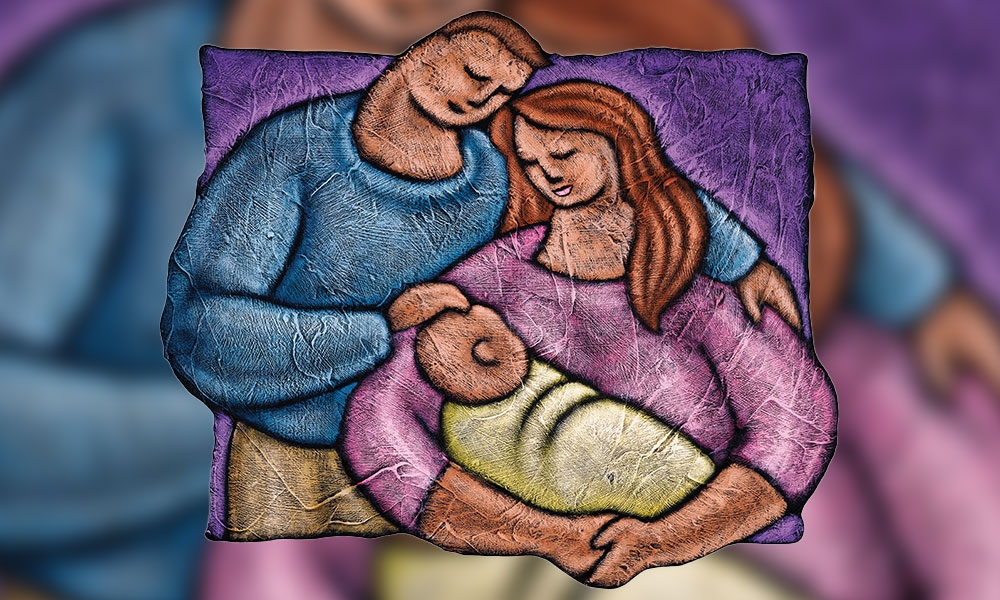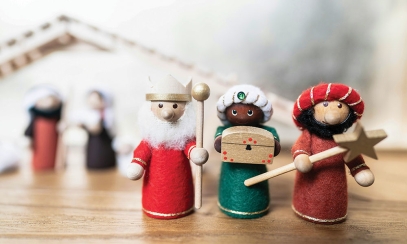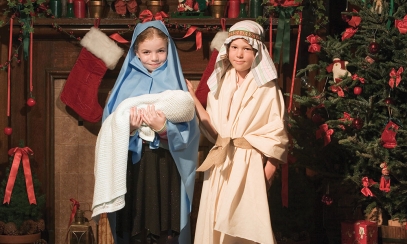
The watching world sees our Catholic consistency
We are blessed to live within walking distance of our parish, which means we enjoy unique luxuries like running home to get our own cup of coffee to have with doughnuts after Mass. It also means we become known to our neighbors as the “church people,” since they see us walking back and forth so much.
We are blessed to live within walking distance of our parish, which means we enjoy unique luxuries like running home to get our own cup of coffee to have with doughnuts after Mass. It also means we become known to our neighbors as the “church people,” since they see us walking back and forth so much.
A few weeks ago, one neighbor stopped to chat. She lives right across the street from our school playground, just a few steps from the front doors of the sanctuary. I don’t know her whole story; however, observing the grounds for years has affected her. She’s told us several times, “This church is different. I can tell you all really believe this because you all smile when you’re walking to your cars, and the teachers are so kind to the students when I watch them outside for recess.”
Consistency in the message matters. If our neighbor ever considers joining us for worship, which I pray for regularly, it will probably be because people waved at her for years on their way to Mass and the kindness she saw from the students and teachers every day at recess. These virtues are lived daily. Similarly, the way we treat others — especially the most vulnerable among us — is a critical witness as we proclaim the dignity and respect due to all human life.
When Roe v. Wade was overturned in 2022, I frequently said that now it was even more critical to work to bring about a culture where abortion was unthinkable because the sacredness of all human life was universally recognized.
In everyday life, this looks like the hard work of caring for mothers and families in crisis and addressing the challenges of child care, health care and housing. There are no easy answers to these questions. People who advocate for meeting these needs are showing with their words and deeds that all life deserves dignity and respect, that no parent is alone on their journey.
In the same way, the consistency of the pro-life message demands that we wrestle with the questions of how all people can flourish and provide for themselves and their children — no matter what their country of origin may be. Our Catholic faith teaches us that the dignity of each and every person is God-given; any words or deeds that indicate otherwise are incongruent with the Gospel.
Much like my neighbor watches how we treat one another on the way to Mass, our neighbors everywhere are watching the policies we support, what we share on social media and the ways we interact with everyone, especially the most vulnerable in our midst.
We all have inherent dignity because of our Creator — not where we were born or the skills we have. When Catholics give any credibility to those who claim otherwise or when we fail to acknowledge the dignity of each person, we tarnish the Christian witness in ways that will be felt for generations.
It is reported by many that “Mother” St. Teresa of Calcutta used to describe the poor she and her sisters served as “Jesus in distressing disguise.” In 2025, an authentic pro-life and Catholic witness requires that we ask ourselves, daily, where Christ is revealing himself in his most distressing disguise, and how we can welcome him with our words and deeds.
Alison Blanchet, LMHC, lives in Panama City with her husband and three children. She works as a therapist for children and teens. Email her at alisondblanchet@gmail.com.



